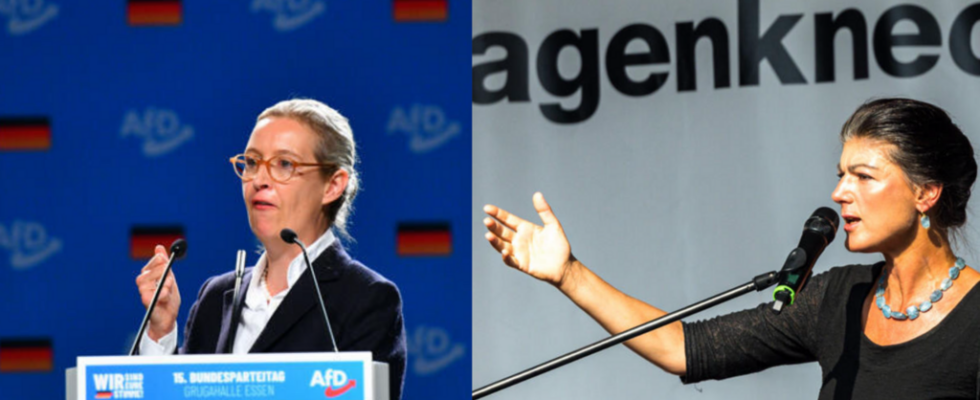One, Alice Weidel, is a former businesswoman at the head of a far-right party, the AfD, which is going from strength to strength. The other, who joined the communist party late in the moribund GDR, leads a movement that bears his name, the Sahra Wagenknecht Alliance (Bündnis Sahra Wagenknecht). This new force combines left-wing ideas on economic and social issues but makes very conservative comments on migration or security issues. For the first time, a televised debate pitted the two women against each other on the evening of Wednesday, October 9.
2 mins
With our correspondent in Berlin, Pascal Thibaut
Sahra Wagenknecht, the brunette, in her figure-hugging lemon suit arrives first. Alice Weidel, the blonde, white blouse and black jacket arrives at the last moment. THE duel much announced can begin. Will the two women tear each other apart or will their convergences prevail?
First of all, Sahra Wagenknecht denounces the systematic rejection of the AfD by other forces and calls for more fair play regarding the far-right party: “ Ms. Weidel represents what the AfD was initially, a conservative party focused on the market economy. »
Rejection of aid to Ukraine
The two women come together over their rejection of the aid of theGermany to Ukraine and their plea for negotiations between Moscow and kyiv. They both denounce uncontrolled immigration and plead for the expulsion of irregular or criminal migrants.
But Sahra Wagenknecht, undoubtedly better prepared, denounces the AfD’s plans to expel millions of foreigners, even assimilated ones, and the most radical elements of the far-right. The party Bündnis Sahra Wagenknecht (BSW), less radical, can already hope after a few months of existence to participate in regional governments.
“ Germans want political change »
For Alice Weidel, a sign that her competitor only wants to support existing parties: “ The Germans want political change. But it is not possible with the BSW which, as we see in regions of the east of the country, can now serve as a supporting force to the traditional parties. »
During the last regional elections, theAfD in the East obtained around 30% of the votes and Sahra Wagenknecht’s party between 12 and 16%.
International guestGermany: “Discontent is a strong driving force for many AfD voters”
